In this article
Everyone knows that cats are obligate carnivores. In other words, they evolved to eat meat entirely. They don’t typically eat anything else, though they can stomach some other foods. For this reason, giving them canned chicken may seem like a good option. After all, it is entirely chicken.
However, just because something is meat doesn’t mean you should feed it to your feline. Multiple types of meat aren’t necessarily an optimal choice for our felines.
So can cats eat canned chicken? Luckily, canned chicken is a typically okay option. Your cat shouldn’t live off of canned chicken, but you can use it to supplement their diet when used correctly. Many felines love the smell of canned chicken. In some cases, they may like it a little too much, which can cause some particular problems.
Keep reading below for everything you need to know about feeding your feline canned chicken.
Is Canned Chicken Safe for Cats?
Generally, canned chicken isn’t going to harm your cat if they only eat it occasionally. Of course, it does depend on what is in the canned chicken. Many are full of other substances, some of which may not be appropriate for your feline. Read the ingredient label to figure out what precisely is in the can.
When it comes to canned chicken, it is not the chicken but the rest of the ingredients that you have to be worried about. Many canned foods contain a large amount of sodium, which helps keep them fresh. However, some may also contain seasonings, flavorings, and other preservatives that might not be suitable for your cat.
If you run out of cat food, canned chicken that has only chicken, water, and a bit of salt can be a safe alternative, though reading and understanding the label is a must.
When possible, you should avoid giving canned chicken to your cat. If you have the opportunity, you should offer them plain boiled chicken instead, as that is a safer alternative. But if canned chicken is your only option, be sure you read and understand the label.
If your cat is on a special diet due to health conditions including but not limited to kidney disease, diabetes, hyperthyroidism, or any other medical problems, you should not offer them canned chicken or any other human foods without the authorization of a vet.
Need veterinary advice but can't get to the clinic? Catster recommends PangoVet, our online veterinary service. Talk to a vet online and get the answers and advice you need for your cat without having to leave your living room — all at an affordable price!

Can Cats Eat Canned Chicken Without Cooking?
You do not have to cook canned chicken before feeding it to your felines. The large majority of canned chicken has already been cooked or is at least slightly cooked. It is usually put in a boiling water bath to kill the bacteria and seal the lid. Because of this, it is safe to eat right out of a can.
Most canned chicken is even safe for people to eat straight out of a can. This is because it is all cooked at least a little bit.
Should I Rinse Canned Chicken?
When feeding canned chicken to your cat, we recommend rinsing it with purified drinking water first. This will wash away some of the sodium, which might make it healthier for your cat. We also recommend washing the can before you open it. This prevents contaminants on the outside of the can from falling onto the chicken when you open it. While the chance of this is relatively low, it can happen, so it is best to avoid it by washing the can.
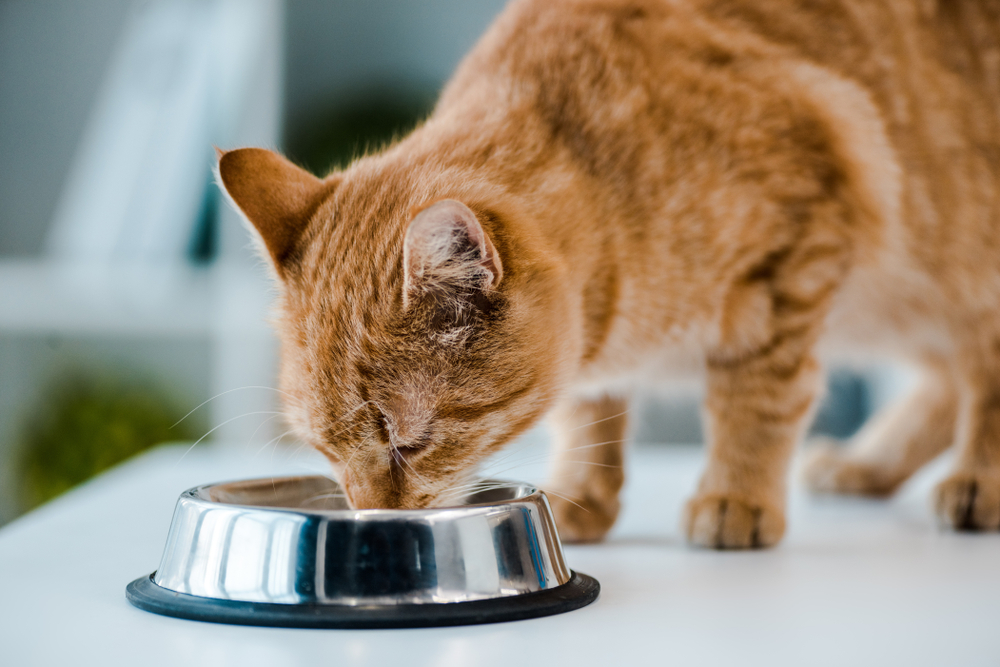
How Long Is Canned Chicken Good For?
After opening, canned chicken can be kept in a separate container in the fridge for about 5 days. Your cat may not eat all the canned chicken at once, especially if you’re supplementing with it. Just be sure to feed it to them within those 5 days, as bacteria could start growing after this point.
Before it is opened, you should follow the best-by date listed on the can. Typically, canned chicken can last for years if it has not been opened. The exact length will vary, though. It depends on the additives and sodium level in the canned chicken. The environment might matter too, though most homes are perfectly suitable for storing cans. Just don’t leave it out in the sun, rain, or something of that sort!
While sharing human food with your cat is not always safe, we have a solution that will keep you both smiling.
We've currently got a 40% discount to share on the HUMAN-GRADE premium cat food that ranked number #1 in our reviews! CLICK HERE & use code Catster24 to SAVE 40% on Smalls cat food!
Canned Chicken: Not a Complete and Balanced Diet
While canned chicken might be okay to feed your cat in an emergency or as a treat, it is definitely not something that you should feed to them every day. It does not contain all the nutrients that your pet needs to thrive. Felines have special and specific nutritional needs that canned chicken by itself cannot cover. For example, since it does not contain any of the chicken’s liver or heart, it will be deficient in taurine, and since it does not include any bones, it will also be deficient in calcium.
Commercially available fresh, wet, or dry food should be labeled as complete and balanced, which means it includes all the nutrients that your cats need. Canned chicken lacks many of these nutrients, so you should not expect your cat to live on canned chicken alone. You can use it as an emergency for a day or two and as an occasional treat, but not on a regular basis.
Canned Chicken and Obesity
Canned chicken can cause obesity, though of course, you could say this about literally any cat food out there. However, canned chicken can be a particular problem because it smells delicious. This can make cats indulge a little too much, which can cause obesity.
You should not allow your feline to gorge themselves on canned chicken. Not all cats will have this problem, but many food-driven felines will. You should always feed them the amount they need to meet their nutritional needs and no more. When using it as a treat or supplement, be sure to take their other foods into account.
- NO MESS - The 360° tray on this cat food and water bowl set has a raised design to catch and...
- WHISKER FRIENDLY - Shallow and wide metal containers with flat bottoms ensure your kitty can enjoy...
- CHEW-SAFE MATERIALS - Kittens and cats love chewing on silicone and soft rubber - but it's a choking...
Learning about what your cat can and cannot eat is a crucial part of keeping them happy and healthy! Choosing a bowl to serve cat-friendly foods in is another important decision pet owners face. Satisfy the specific needs of your cat with the innovative design of the Hepper NomNom Cat Bowl. Learn why it’s our (and our cats!) favorite food and water dish here.
At Catster, we’ve admired Hepper for many years and decided to take a controlling ownership interest so that we could benefit from the outstanding designs of this cool cat company!

Conclusion
Cats can have canned chicken and it can even be used as an emergency meal or as a supplement. If the ingredients do not include spices, flavorings, or items that are toxic for cats, it should be safe. You should not feed it to your cats as their only source of food, though. It is not nutritionally complete, so your feline will need to eat other things as well.
For many cats, canned chicken can be a great occasional treat. Many people give it to their cat on their birthday or similar special occasions. This is an appropriate use of canned chicken.
However, cats on a prescription diet or with specific health conditions should not be offered canned chicken or any other human foods without the authorization of a veterinarian.
See also:
Featured Image Credit: stockphotofan1, Shutterstock
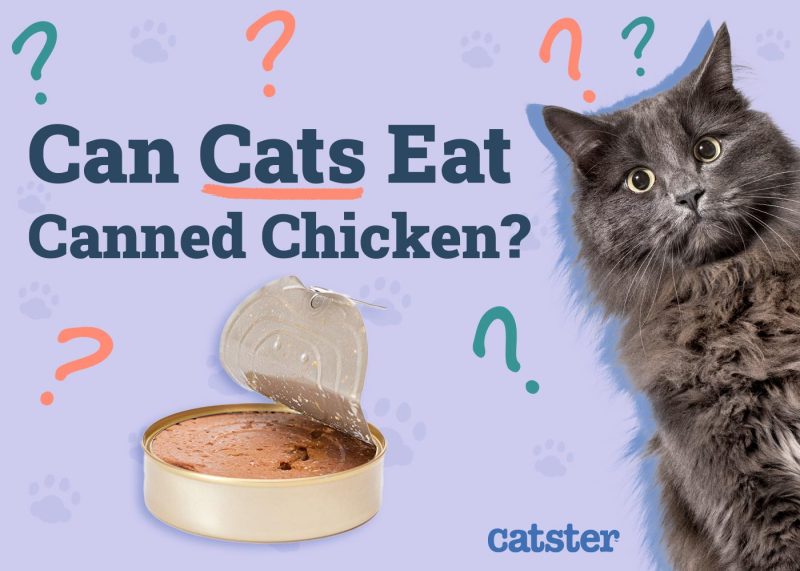




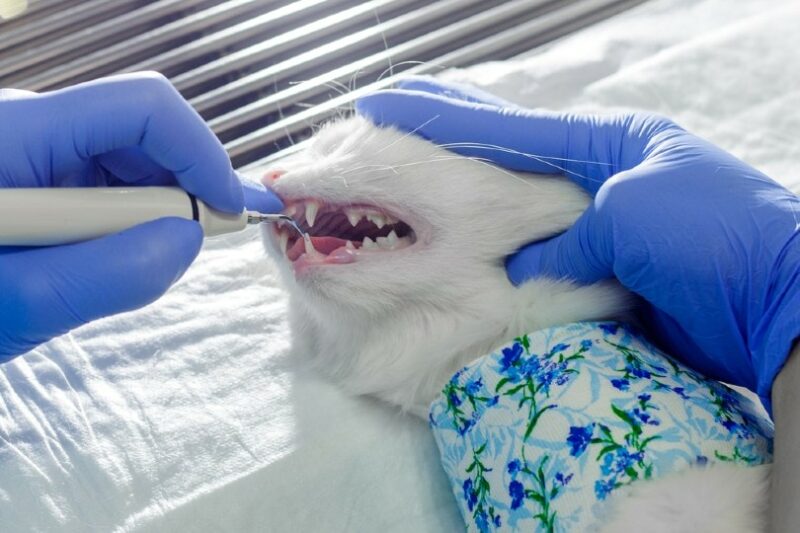

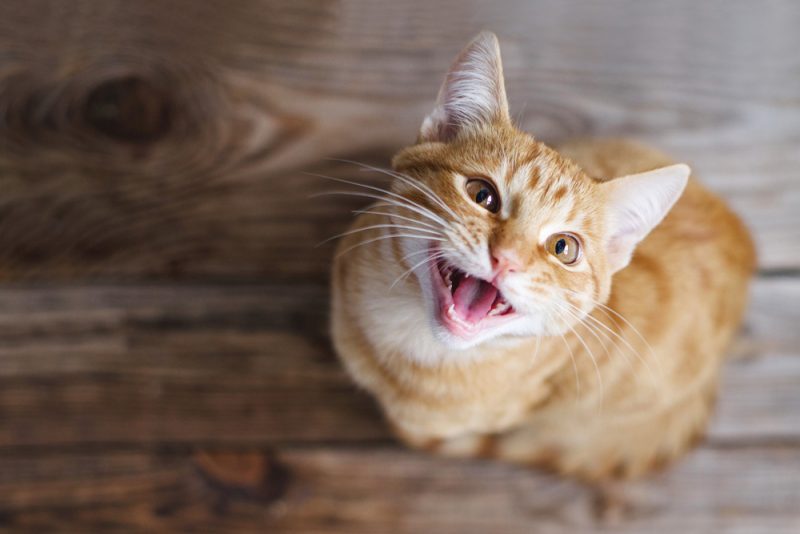
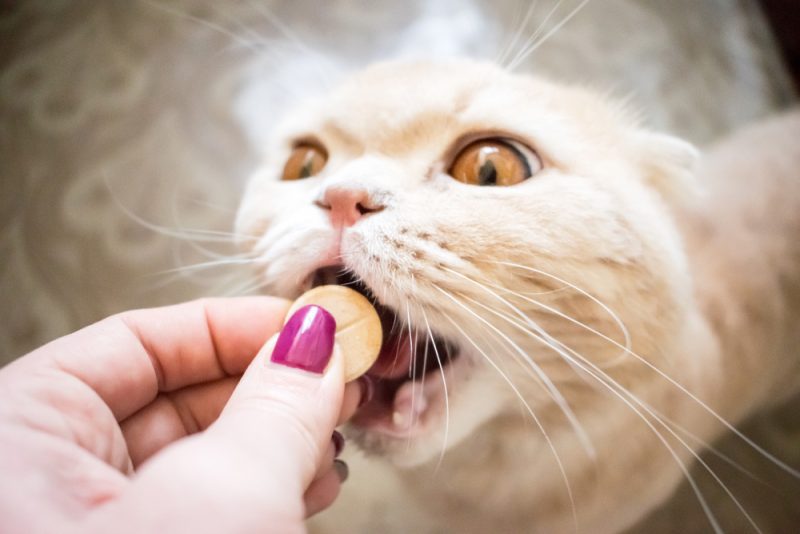
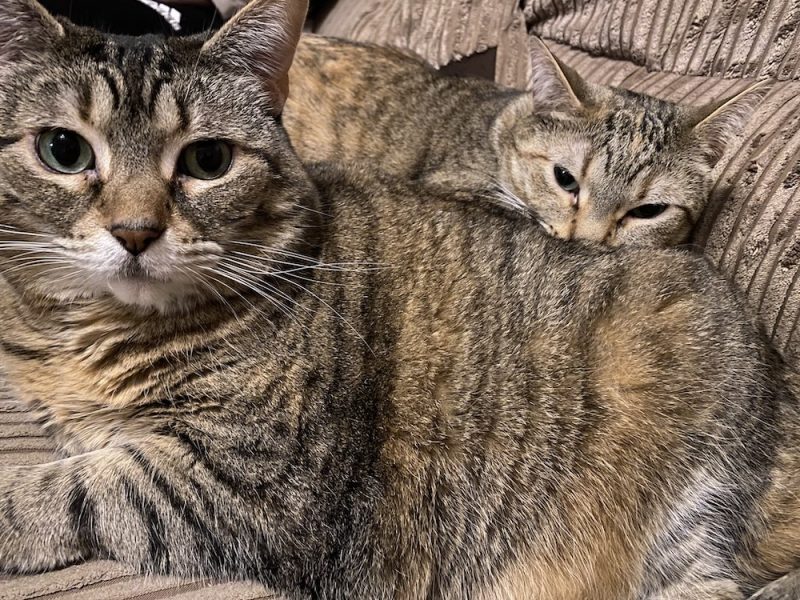
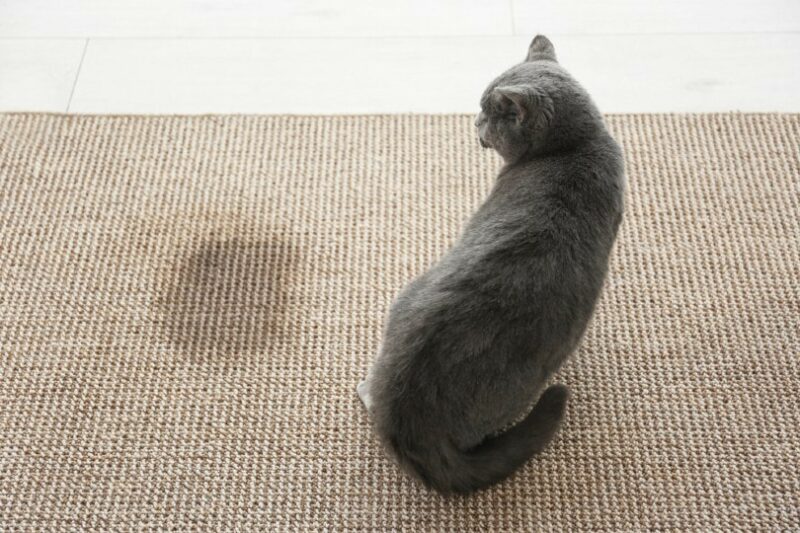
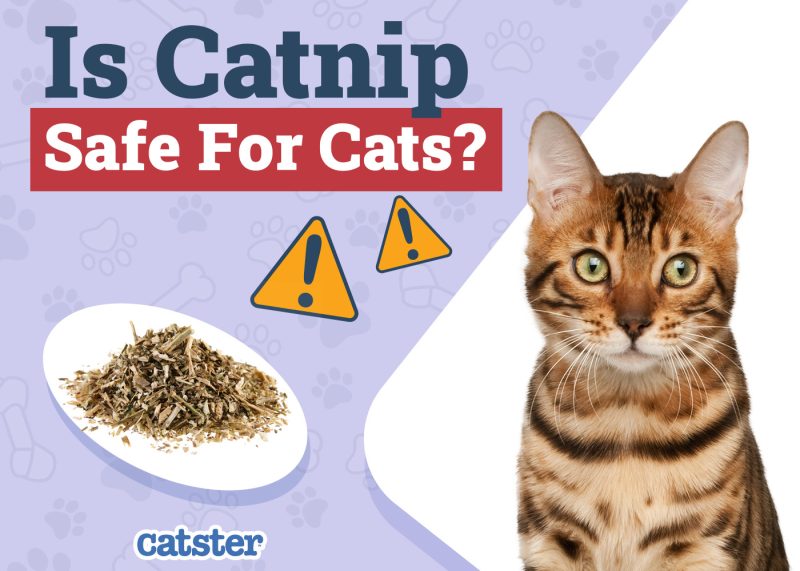
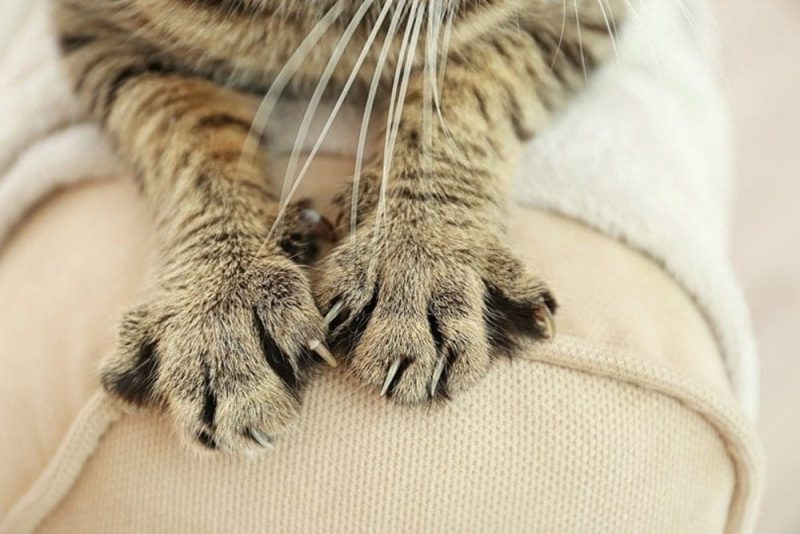
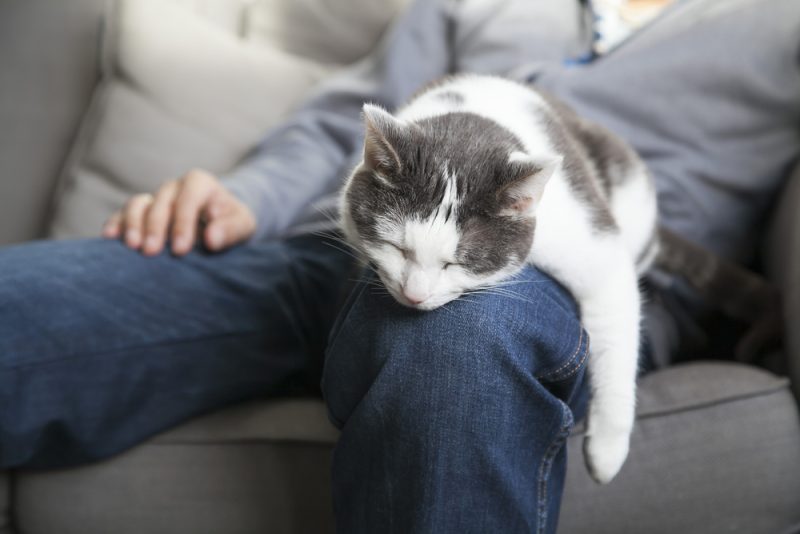
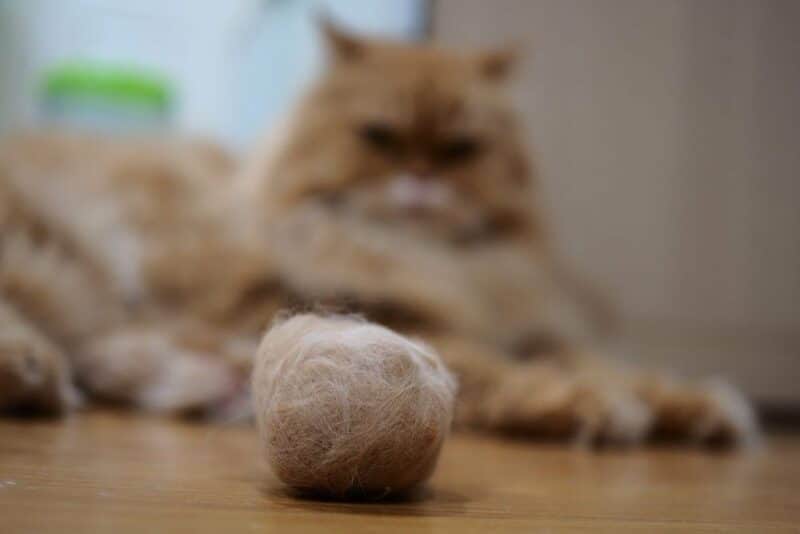
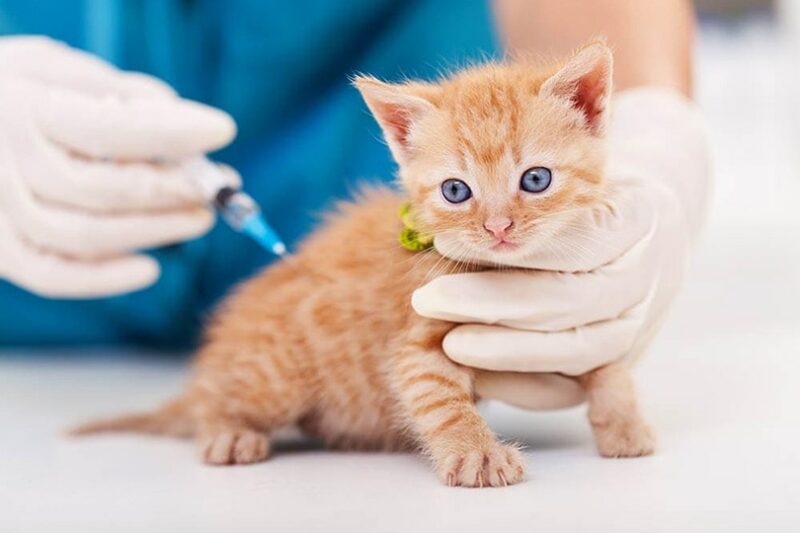
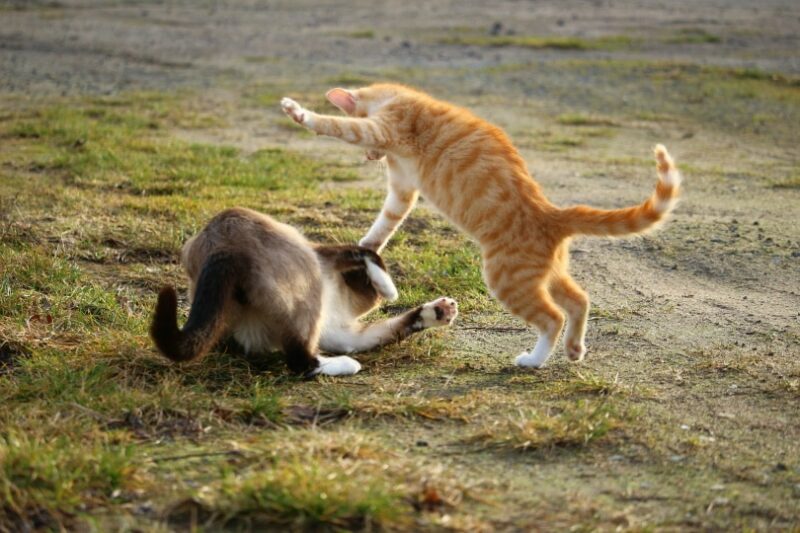
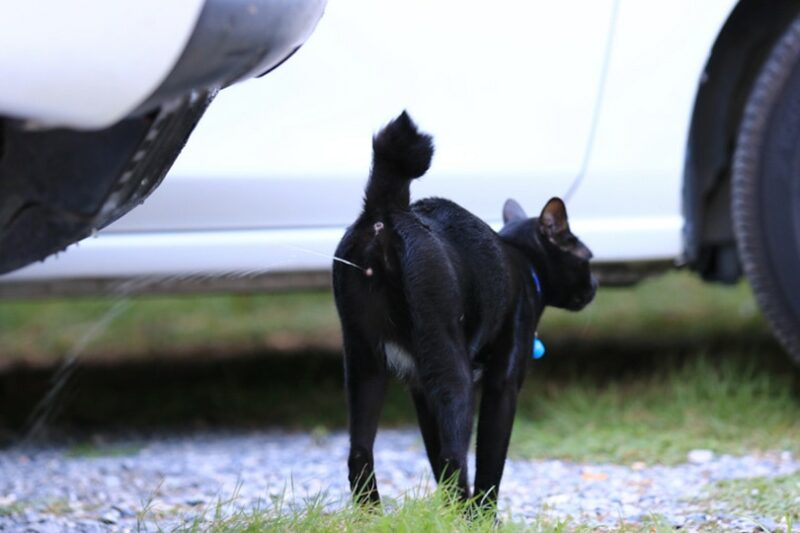
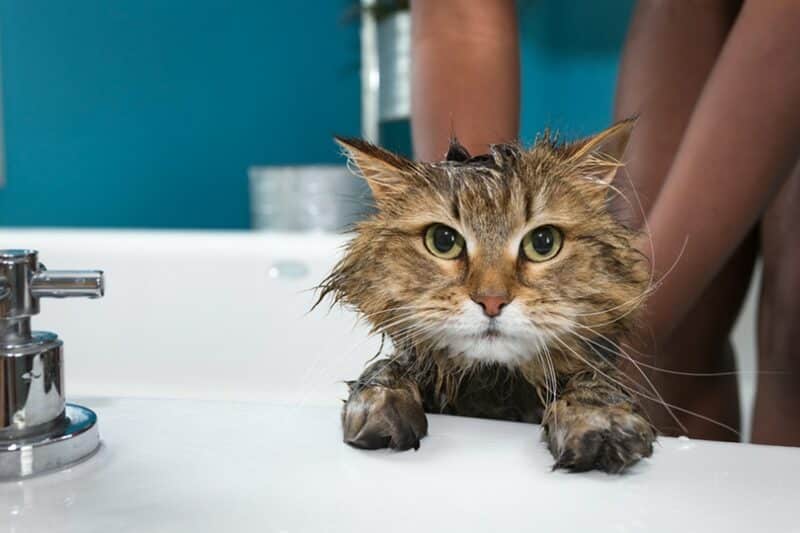
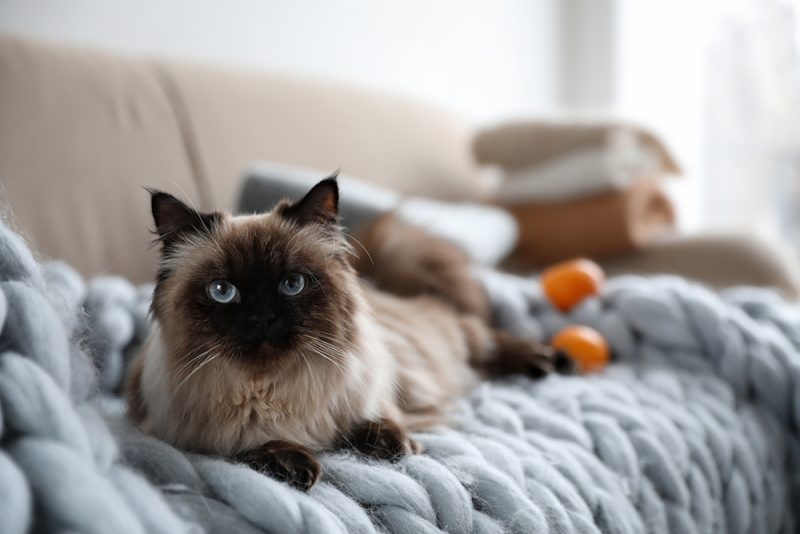
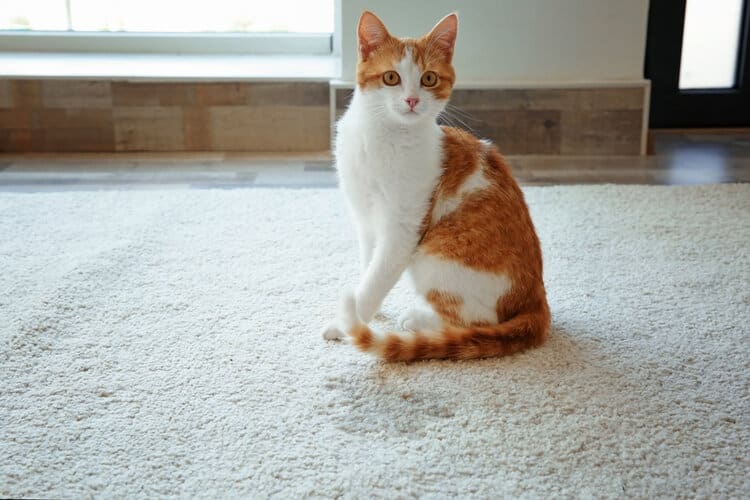



2 Responses
My car is one a diet because I accidentally got kitty wet food for like 3 years. She's on a lower I calory diet of about 1/2 pumpkin filling, 1/4 canned food. A little less than a forth tuna or sardines. The rest is Valarian root powder and/or catnip. I freeze some in an ice tray an the rest refrigerated. I feed this ther 2 times a day 1/2 frozen vubr half refrigerated. It keeps her busy or she will be pestering me an hour later for more
Hi Steve, thanks for sharing your story. It is always important to ensure that what we feed our cats needs to be a complete and balanced diet. If feeding something daily we recommend getting it approved and checked by a veterinarian to ensure kitties have everything they need to maintain their health or very gradually lose or gain weight as needed. You might find this post helpful: How to Help a Cat Lose Weight: Our Vet Answers- https://www.catster.com/ask-the-vet/help-cat-lose-weight-vet-answer/